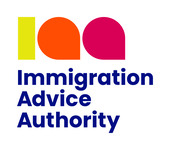Table of Contents
What is the UK Global Talent Visa?
The UK Global Talent Visa offers an unrivalled pathway for leading professionals and promising individuals to live and work in the United Kingdom without sponsorship. It replaced the Tier 1 (Exceptional Talent) visa in February 2020.
Applying for the Global Talent Visa is a 2-step process, that starts with securing endorsement from on of the six designated endorsing bodies. Each body has specific criteria for evaluating whether an applicant meets the standard of “Exceptional Talent” or “Exceptional Promise.”
Understanding the endorsement criteria is a critical step in preparing a strong application and maximizing your chances of success. We will cover the evaluation criteria for The Royal Society, The Royal Academy of Engineering, The British Academy, Tech Nation, Arts Council England, and UK Research and Innovation (UKRI).
General Global Talent Visa Endorsement Criteria
While each endorsing body has its specific criteria tailored to its sector, some general principles apply across the board:
- Exceptional Talent vs. Exceptional Promise: Applicants who are already established leaders in the their field with at least 5 years experience are considered Exceptional Talent. Those early in their careers who demonstrate the potential to become leaders are considered Exceptional Promise.
- Evidence-Based Assessment: All endorsements require documentary evidence to support the application. The quality, relevance, and strength of this evidence are paramount.
- Peer Review: Applications for endorsement are assessed by experts in your specific field. These reviewers evaluate the applicant’s track record, contributions, and potential impact.
- Contribution to the UK: The Global Talent Visa is designed to attract professionals who will contribute their skill to the UK economy. Consequently, the endorsing body will assess your potential contribution to the UK in areas such as research, innovation, culture, or the digital technology sector.
- Adherence to Guidelines: The endorsing bodies provide guidelines for submitting a valid applications including document formats, page limits, and the type of information required. You must follow these guidelines.
The Royal Society (Natural and Medical Sciences)
The Royal Society endorses applicants in the natural and medical sciences.
The Royal Society assesses applications based on the individual’s research achievements, innovation, and potential to contribute significantly to their field in the UK. The Royal Society offers a standard peer reviewed option and a fast-track option for endorsement.
Standard Peer Review (Route 4):
- Mandatory Eligibility:
- Active researcher (in university, research institute, or industry).
- PhD or equivalent research experience.
- For Exceptional Promise: typically at an early stage of their career (e.g., within 5 years of PhD or equivalent experience).
- Provision of all required documents.
As previously mentioned, the Royal Society will be assessing your application considering your track record/career history, the strength of supporting documents, your potential contributions to the UK’s research and innovation excellence.
Fast-Track Routes
The fast-track routes apply if you are fall into any of the following:
- Academic Appointments
- Fellowships
- Endorsed Funders
Evaluation for these routes primarily focuses on verifying that the applicant meets the specific eligibility criteria for the appointment, fellowship, or grant, as confirmed by the relevant institution or funding body. The quality of the role or award itself is a key indicator.
The Royal Academy of Engineering (Engineering)
The Royal Academy of Engineering (RAEng) endorses applicants from all engineering disciplines.
RAEng looks for engineers who are leaders or potential leaders, capable of contributing to UK engineering excellence, innovation, and economic development.
Standard Peer Review (Route 4):
- Exceptional Talent: Established engineers with a significant track record of innovation or outstanding contributions to engineering. Evidence includes senior roles, impactful projects, influential publications, patents, and recognition by peers.
- Exceptional Promise: Early-career engineers demonstrating strong potential to become leaders. Evidence includes strong academic background, significant contributions to projects relative to career stage, and strong letters of recommendation highlighting future potential.
- Common Criteria for both:
- Innovation and creativity in their engineering work.
- Technical proficiency and expertise.
- Impact of their work (or potential impact for Promise candidates).
- Strength of letters of recommendation from recognized experts.
Similar to the Royal Society, evaluation verifies eligibility based on the offered position, fellowship, or grant, ensuring it meets the required standards of leadership or research contribution.
Fast-Track Routes – Academic Appointments, Fellowships and Endorsed Funders.
🔗 Read our in-depth Guide to Global Talent Visa Endorsement Guide for Engineers
The British Academy (Humanities and Social Sciences)
The British Academy is the endorsing body for applicants in the humanities and social sciences.
The Academy assesses whether applicants have an established track record (Exceptional Talent) or demonstrate strong potential (Exceptional Promise) to become international leaders in their field, contributing to UK research and academic life.
Standard Peer Review (Route 4):
- Mandatory Eligibility: Similar to the Royal Society (active researcher, PhD or equivalent, early career for Promise).
Fast-Track Routes
(Academic Appointments, Fellowships, Endorsed Funders) Evaluation focuses on confirming that the academic position, fellowship, or funded research role meets the British Academy’s standards for leadership or significant research contribution within the humanities and social sciences.
🔗 Read our in-depth Guide to British Academy Endorsement
Tech Nation (Digital Technology)
Tech Nation is the endorsing body for individuals in the digital technology sector.
Tech Nation assesses applicants based on their technical skills, business acumen, and track record of innovation and impact within the digital technology sector.
Key Evaluation Criteria (Typically involves meeting a Mandatory Criterion and a set of Optional Criteria):
- Exceptional Talent (Leaders): Requires significant experience (often 5+ years) and recognition as a leader in the digital technology field. Must demonstrate a proven track record of innovation, significant contributions to the sector, and often, leadership roles.
- Exceptional Promise (Potential Leaders): For individuals with less experience (often less than 5 years) but who can demonstrate the potential to become a leader. Must show clear evidence of innovation, strong technical or business skills, and significant achievements relative to their career stage.
- Mandatory Criterion (Example): Recognition as a (potential) leading talent in the digital technology sector in the last 5 years.
- Optional Criteria (Examples – applicants usually need to meet a certain number of these):
- Proven track record for innovation as a founder or senior executive of a product-led digital technology company or an employee working in a new digital field or concept.
- Proof of recognition for work beyond the applicant’s occupation that contributes to the advancement of the field.
- Significant technical, commercial, or entrepreneurial contributions in the digital technology sector as a founder, senior executive, board member, or employee of a product-led digital technology company.
- Evidence of academic contributions through published research or endorsement by a research supervisor.
The This includes letters of recommendation from recognized digital technology experts, CV, personal statement, and specific pieces of evidence supporting the chosen optional criteria (e.g., product designs, code repositories, company growth metrics, conference presentations, articles).
Arts Council England (Arts and Culture, including Architecture, Fashion Design, Film and Television)
Arts Council England endorses individuals in the fields of arts, culture, and creative industries. This includes combined arts, dance, literature, music, theatre, visual arts, museums and galleries, architecture, and fashion design. Film and Television has specific criteria often assessed in conjunction with PACT (Producers Alliance for Cinema and Television).
The Arts Council looks for artists and cultural professionals who have a substantial track record of producing work of outstanding quality and has been recognized internationally or is likely to achieve this.
Key Evaluation Criteria (General – specific criteria may vary by art form):
- Exceptional Talent:
- Must be an established artist or cultural professional, recognized as a leader in their field.
- Must provide evidence of at least two significant achievements from a list that includes international awards, media recognition, international appearances/exhibitions.
- Exceptional Promise:
- Must be an emerging artist or cultural professional with the potential to become a leader.
- Must provide evidence of at least one significant achievement from a similar list, or evidence of recent recognition by established experts.
- Evidence Requirements: Typically includes a portfolio of work, letters of recommendation from established UK-based arts/cultural organizations, evidence of media recognition/awards, and a clear plan for future work in the UK.
Specific Considerations for Film and Television: Applications in film, television, animation, post-production, and visual effects are often assessed based on significant contributions to major productions, awards from prestigious festivals, or recognition by relevant industry bodies.
Specific Considerations for Architecture and Fashion Design: These fields have their own specific criteria, often requiring recognition from relevant professional bodies or significant achievements in international contexts.
UK Research and Innovation (UKRI) (Research and Innovation)
UKRI works with a number of approved research organisations to endorse Global Talent visa applications for researchers, scientists, and technical specialists working on UKRI-funded projects or in specific roles within these organisations.
UKRI’s endorsement focuses on individuals who will be working on or leading significant research projects funded by UKRI or hosted by approved research organisations. The key is the individual’s role and the importance/validity of the research project or hosting organisation.
Key Evaluation Routes and Criteria:
- Endorsed Funders Route: This is the primary route through UKRI. Applicants must have an eligible job offer from an approved research organisation with a project funded by an endorsed funder. The evaluation involves:
- Confirmation from the research organisation that the applicant and their role meet the eligibility criteria (e.g., named researcher on a grant, essential to the project).
- The grant must meet certain criteria (e.g., minimum value, duration).
- The research organisation itself must be on UKRI’s approved list.
- Senior Appointments and Fellowships: For very senior academic or research appointments (e.g., Professors, Directors of Research) or prestigious fellowships hosted at approved institutions, UKRI may provide endorsement. The evaluation focuses on:
- The seniority and strategic importance of the role.
- The international standing and track record of the applicant.
- The reputation of the hosting institution.
Evidence Requirements: Typically includes a job offer letter, a letter from the employing/hosting research institution detailing the role and its eligibility under the specific UKRI route, and evidence of the research grant or fellowship award.
Conclusion
Securing an endorsement from the correct body, supported by robust evidence that meets their specific evaluation criteria, is the cornerstone of a successful UK Global Talent Visa application.
You should thoroughly research the requirements of the endorsing body most relevant to your field and career stage. Understanding how these bodies evaluate applications will enable prospective talents to prepare a compelling case, highlighting their achievements and potential contributions to the UK.
Author

Tochi Okoronkwo
Tochi is an IAA certified immigration adviser with expert knowledge of UK Immigration Law and a genuine desire to make your immigration journey as smooth and stress-free as possible.
Stay Updated
Related Articles
Quickly browse the latest offers, read in-depth articles, and case studies to get the full story.


